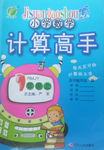题目内容
___________________ are Young Pioneers.
A. All student B. All of students C. All of the students D. All students
【答案】
C
【解析】略

练习册系列答案
 智能训练练测考系列答案
智能训练练测考系列答案 计算高手系列答案
计算高手系列答案
相关题目
A new term has begun. Teachers are __36__ about the fact that new students are not easy to handle. They like to bring cellphones and MP3 players to school. What is __37__, some students even use cellphones to do with out-of-class matters in class, or sometimes just for fun. Some other students listen to MP3 players when they are having a lesson that they are not interested in.
Are these new students really that __38__? ‘Yes,’ says Delaney Kirk, a professor at Drake University. __39__ she adds it’s not their fault. Instead, the things that they bring into school --- cellphones, MP3 players and so on --- and the teachers are to blame. Kirk first began thinking about students’ manners six years ago. ‘I had my first class in which students were sleeping or talking to each other. It seemed that learning well __40__ nothing to do with them,’ she says. ‘At first, I got worried about this, but then I said to myself, “You’re teaching __41__, and you need to manage this … These students need to know more about manners. It’s time to help them develop some good __42__. They shouldn’t waste time doing nothing when they are young. Sooner or later, they might regret the time they have wasted.”’
Kirk also __43__ a list of suggestions to help teachers better manage their classes. The following are among her suggestions:
l Tell students how they will benefit by taking the class. On the first day of class, emphasize its importance __44__ giving some homework that students must turn in next time.
l Do not allow them to bring cellphones and MP3 players to the class at all.
l Decide __45__ formal and informal the class will be.
Are these new students really that __38__? ‘Yes,’ says Delaney Kirk, a professor at Drake University. __39__ she adds it’s not their fault. Instead, the things that they bring into school --- cellphones, MP3 players and so on --- and the teachers are to blame. Kirk first began thinking about students’ manners six years ago. ‘I had my first class in which students were sleeping or talking to each other. It seemed that learning well __40__ nothing to do with them,’ she says. ‘At first, I got worried about this, but then I said to myself, “You’re teaching __41__, and you need to manage this … These students need to know more about manners. It’s time to help them develop some good __42__. They shouldn’t waste time doing nothing when they are young. Sooner or later, they might regret the time they have wasted.”’
Kirk also __43__ a list of suggestions to help teachers better manage their classes. The following are among her suggestions:
l Tell students how they will benefit by taking the class. On the first day of class, emphasize its importance __44__ giving some homework that students must turn in next time.
l Do not allow them to bring cellphones and MP3 players to the class at all.
l Decide __45__ formal and informal the class will be.
| 【小题1】 |
|
| 【小题2】 |
|
| 【小题3】 |
|
| 【小题4】 |
|
| 【小题5】 |
|
| 【小题6】 |
|
| 【小题7】 |
|
| 【小题8】 |
|
| 【小题9】 |
|
| 【小题10】 |
|